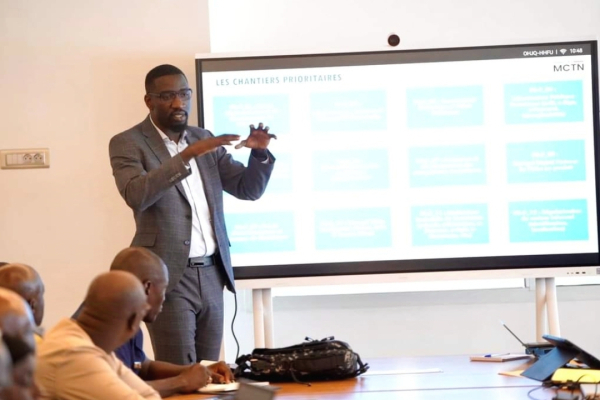The Senegalese government aims to modernize its economy by integrating information and communication technologies (ICT) across all sectors. To achieve this goal, the administration is developing a clear roadmap outlining the key steps needed to accelerate the country's digital transformation.
Senegal is preparing to adopt a new digital transformation strategy, SN 2034, dubbed the "New Deal Technologique." This strategy, built around four major pillars, was presented on Wednesday, October 9, during a workshop in Dakar to sectoral ministries and public organizations.
The first pillar focuses on establishing the necessary infrastructure to ensure technological sovereignty. This includes the creation of a sovereign cloud, developed in partnership with Google, to meet the growing needs of Senegalese and African administrations and businesses. The second pillar aims to provide affordable Internet access for all citizens, including those in remote and border areas. Discussions are underway with submarine cable and satellite connectivity providers such as Starlink and Google.
The third pillar centers on developing digital skills, with a focus on emerging technological fields such as artificial intelligence. U.S. companies Meta and Nvidia have been approached to support this goal. Finally, the fourth pillar, building on the previous one, seeks to foster a favorable environment for innovation and tech entrepreneurship. A memorandum of understanding has already been signed with U.S. firm Google to provide AI solutions and Google tools to accelerate the growth of Senegalese startups and SMEs.
The SN 2034 strategy, currently under development, will replace the SN 2025 strategy, which was implemented in 2016. It is part of the broader national transformation agenda, "Senegal 2050." Welcomed by tech companies during President Bassirou Diomaye Faye's recent visit to New York, these firms have committed to supporting the government in its implementation. This new strategy represents a major turning point for Senegal's digital future.
Samira Njoya



















